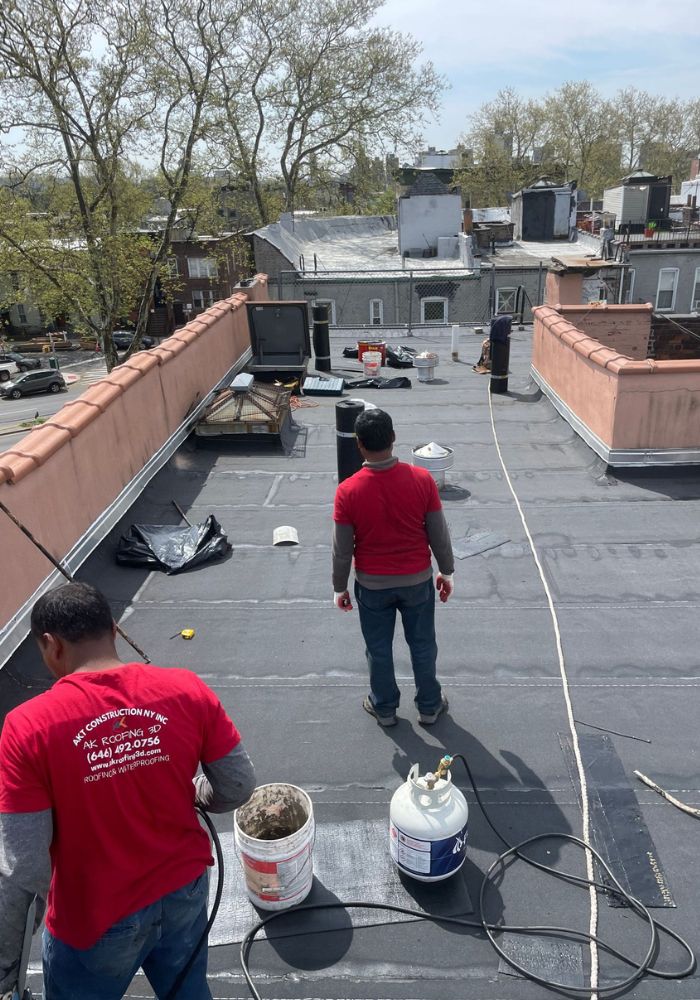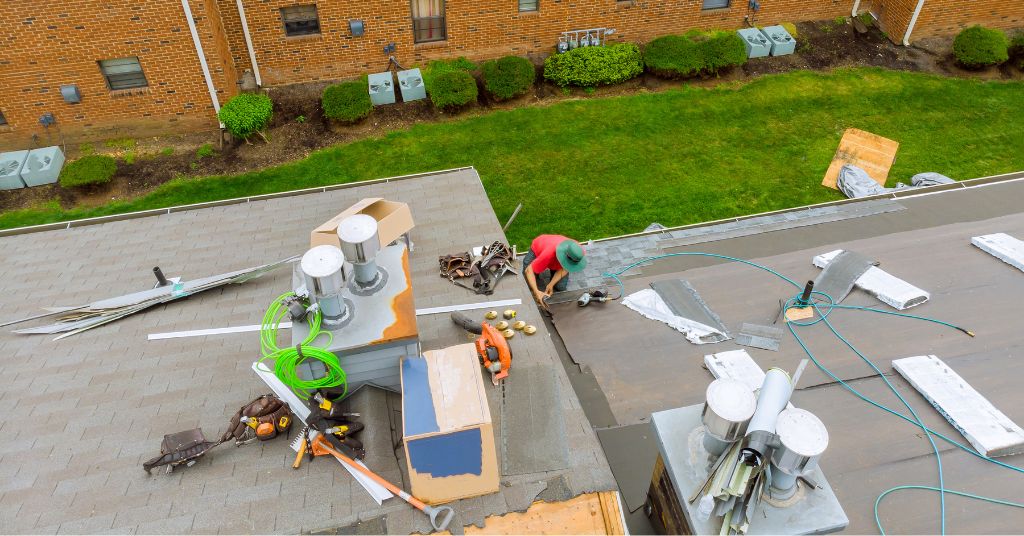The importance of a roof over your home is immense, so if you need to replace it, you need to think long and hard about it. A well-made and well-maintained roof can protect you and your family for decades, but it will wear down. So you will need to replace it once it’s too damaged. But how long does it really take to replace your roof?
We will answer this question in steps and cover all the details you need to remember. We will discuss factors you need to consider when considering replacing your roof. We will show you the steps you must go through as you replace your roof. And we will cover some other topics as well.
Table of Contents
Importance of a Well-maintained Roof
Your roof is the first line of defense against weather conditions, and regular maintenance is critical to extending its lifespan. A neglected roof can lead to leaks, water damage, and compromised structural integrity.
Roof Replacement Signs You Should Check
Before delving into the timeframe of a roof replacement, it’s essential to recognize the signs that suggest your roof is due for an upgrade. These signs may include visible wear and tear, leaks, or missing shingles. Having a professional roofing contractors check your roof will help you figure out the actual condition of your roof.
Factors Influencing Roof Replacement Duration
Type of Roofing Material
Different roofing materials have varying installation times. While asphalt shingles are relatively quick to install, materials like slate or tile may take longer due to their intricacies.
Size and Complexity of the Roof
The size and complexity of your roof play a significant role in determining how long the replacement process will take. A larger or more intricate roof may require additional time and labor.
Weather Conditions
Weather can be a crucial factor. Extreme temperatures, heavy rain, or snow can impact the roofing process, potentially causing delays.
Contractor’s Expertise and Availability
The expertise and availability of your chosen contractor also influence the timeline. A reputable and experienced contractor may be in high demand, affecting scheduling.
Step-by-Step Guide to Roof Replacement

- Inspection and assessment: Start by conducting a thorough inspection of your current roof. Identify areas that require attention and assess the overall condition.
- Obtaining necessary permits: Before starting the replacement, ensure you have obtained any required permits from local authorities. This step is crucial to avoid legal complications later on.
- Choosing the right roofing material: Consider the climate and aesthetic preferences when selecting the roofing material. Consult with your contractor to determine the best option for your home.
- Budgeting and financing options: Establish a budget for the project and explore financing options if needed. Many homeowners opt for financing plans to manage the cost of roof replacement.
- Hiring a qualified contractor: Selecting the right roofing contractor is paramount. Look for experience, references, and certifications to ensure a smooth and efficient process.
- Scheduling and timeline: Team up with your contractor to set a practical schedule for the replacement. Keep in mind potential delays due to weather or unforeseen issues.
Common Challenges and Solutions
Unforeseen Structural Issues
During the replacement, unforeseen structural issues may arise. Work with your contractor to address these issues promptly, adjusting the timeline as needed.
Weather-related Delays
Weather conditions can cause unexpected delays—factor in potential weather-related interruptions when planning the project.
Budget Overruns
To avoid budget overruns, communicate openly with your contractor about any changes or additional work that may arise during the replacement.
Effective Communication With Contractors
Stay in touch with your contractor during the whole process. Regular updates can address issues promptly and keep the project on track.
Benefits of Timely Roof Replacement
Enhanced Structural Integrity
A timely roof replacement enhances the structural integrity of your home, preventing potential damage and ensuring long-term durability.
Improved Energy Efficiency
Newer roofing materials often provide better insulation, improving energy efficiency and lowering utility bills.
Increased Property Value
Getting a new roof can boost how much your property is worth. It is a valuable investment in the long-term health of your home.
DIY vs. Professional Roof Replacement
Pros and Cons of DIY
Pros:
- Cost Savings: One of the most significant advantages of a DIY roof replacement is cost savings. You can avoid the labor costs of hiring a professional contractor by handling the project yourself.
- Personal Satisfaction: Completing a DIY roof replacement can provide a sense of accomplishment and pride. Successfully taking on such a significant home improvement project enhances your skills and knowledge.
- Flexibility in Scheduling: DIY projects allow for greater flexibility in scheduling. You can work on the roof replacement at your own pace, taking breaks or adjusting the timeline as needed.
Con:
- Safety Risks: One of the significant drawbacks of DIY roof replacement is the potential for safety risks. Working at heights, handling heavy materials, and using power tools can lead to accidents and injuries without proper training and safety measures. Skilled roofers come prepared with safety gear and know-how to handle risks well.
Importance of Professional Expertise
Having professionals handle roof replacement is crucial for its success and durability. Their expertise brings many benefits to ensure the project’s overall effectiveness and long-term results. Here are three reasons to hire professional roofers:
- Quality Assurance: Professionals ensure your new roof is installed correctly, preventing future problems.
- Safety First: They know how to work safely and have the right gear, reducing the chance of accidents during the replacement.
- Efficiency Matters: With specialized tools and experience, professionals complete the job quickly, minimizing disruptions to your daily life.
Further Reading: 5 Must-Know Tips Before Signing a Roofing Contract
Conclusion
Figuring out how long it really takes to replace your roof can help you decide if you will do it or not. The time needed will depend on many factors, such as material, roof size, and weather. The process involves multiple steps, but the result will bring you many benefits.
Replacing your roof will have challenges, but with the help of professionals, you can get it done faster and safely. However, if you want to save money, you should DIY this process.
Frequently Asked Questions
Q. How do I know if my roof needs replacement?
Check for signs of roof damage, such as missing shingles, leaks, or visible wear and tear. A professional inspection can provide a comprehensive assessment.
Q. What is the average cost of roof replacement?
Costs vary depending on factors like materials, size, and location. Usually, homeowners pay between $5,000 and $15,000 for a roof replacement.
Q. Can I install a new roof over the existing one?
Sometimes, it’s possible, but it’s essential to consult a professional to ensure it’s viable for your situation.
Q. How long does the warranty on a new roof typically last?
Warranties vary, but many roofing materials have warranties ranging from 20 to 50 years. Consult with your contractor for specific details.
Q. Are there financing options available for roof replacement?
Yes, many roofing companies offer financing options to help homeowners manage the cost of a roof replacement. Explore these options to find a solution that fits your budget.

